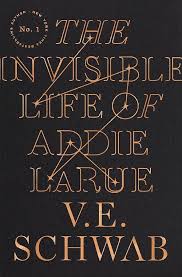Chapter III
byChapter III opens in the hushed atmosphere of a quaint London bookstore on a cold February evening. As the day nears its end and the store prepares to close, the quiet murmur of conversations fills the air. Snow is expected to fall later that night, adding to the serene yet chilly ambiance. Among the bookshelves, a woman stands quietly, observing the subtle rhythms of the store’s final moments of the day. Her gaze shifts as she overhears a discussion between teenage clerks about a mysterious book, The Invisible Life of Addie LaRue, and an older man requesting a copy. The familiarity with which he pronounces the title strikes her as uncanny, causing her heart to skip a beat, for this book is not just a bestseller—it’s a story that feels inexplicably tied to her own life.
As the woman reflects on the book, she realizes how deeply it resonates with her. The story, though authored by an anonymous hand, mirrors events from her own existence, from her experiences to her intimate connection with a man named Henry Strauss. Each page of the novel, filled with the peculiar and haunting tales of a forgotten woman, seems to bring her life to the surface, almost as if it were a reflection of her soul. The book’s dedication—“I remember you”—carries with it an emotional weight that stirs powerful memories. It takes her back to pivotal moments she shared with Henry, moments of connection, love, and, ultimately, loss. The narrative intertwines their lives in a way that feels both comforting and devastating, as if the written words themselves are holding on to pieces of a past that can never truly be let go.
As she immerses herself further in the story, her memories take her on a journey back to Paris during the bitter winters she spent there with Henry, each memory as vivid and fresh as the first snowfall of winter. But as her past begins to flood her thoughts, the unexpected appearance of Luc, a figure from her past, introduces a new layer of complexity to her internal journey. Luc’s presence feels like an intrusion, his possessiveness casting a shadow over the freedom she has found in the book’s pages. The woman’s life, which had been defined by a struggle for independence, is now torn between the familiar pull of Luc’s demanding love and the liberating autonomy she feels within the story she’s reading. This tension between love and independence, between belonging to someone and belonging to oneself, underscores a powerful internal conflict: can one truly be free when past relationships continue to demand so much?
This chapter delves into themes of memory, identity, and autonomy, exploring how past relationships shape who we are and how we see the world. The story’s reflective tone highlights the deep emotional resonance of the book, offering an intimate look at how the woman’s journey of self-discovery has been intertwined with the people she’s loved, lost, and tried to forget. In the tension between her growing connection with Henry and her fraught history with Luc, the chapter paints a poignant portrait of the universal struggle for identity. As the narrative moves seamlessly between the past and present, between reality and the worlds we find in books, it offers a reflection on the timeless quest for self-understanding and the deep, often painful, impact that relationships have on the paths we choose to follow. In the end, the woman must grapple with the conflict between holding on to the past and carving out a future defined by her own choices, unburdened by the weight of others’ expectations. The chapter beautifully encapsulates this struggle, leaving readers to wonder: How much of who we are is shaped by those who leave a mark on us, and how much can we shape on our own?


